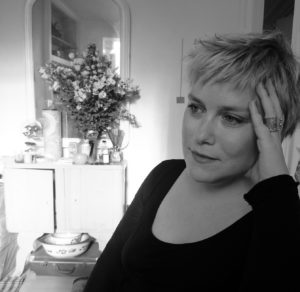Valérie Pihet, Evaluation put to the test by the plurality of knowledge
PROJECT DURATION
2018 - 2021
PROJECT OWNER(S)
Valérie Pihet
The thesis project, L’évaluation à l’épreuve de la pluralité des savoirs, deals with evaluation practices in research and training systems involving the arts and the human and social sciences (SHS). It stems from the observation of institutional, political, economic, but also intellectual difficulties that the research and art worlds encounter in the face of current evaluation constraints, especially when having to report on experimental projects where these worlds collaborate. Indeed, the frameworks of classical academic evaluation resist these collaborations to a greater or lesser extent, which makes it difficult to find or invent new practices – and new evaluation criteria? This situation produces a certain indeterminacy, which also represents an opportunity for inquiry. The hypothesis put forward is that the practices of evaluation – forming plural scales of values – pose new questions in the context of the new and growing collectives created by current interactions between the arts and SHS. In an era where the cult of performance is becoming widespread and the injunctions to excellence have multiplied in the scientific and artistic worlds, wholesale and unexamined criticism dominates and polarizes discourses. By describing the problems raised by the evaluation of these projects, we do not point to abandoning all criticism but to nourishing it or providing other foundations, from below, with better quality of information.
Biography

Valérie Pihet is developing an independent research and experimentation activity at the crossroads of the arts and human sciences. She is also doing a thesis at EUR Artec (Paris Lumière University) and the Laboratory of Political Theories (LabTop-Cresppa, Paris 8) on the challenges of multidisciplinary evaluation. She was the collaborator of Bruno Latour with whom she co-founded the Experimentation program in arts and politics at Sciences Po Paris (SPEAP) which she directed from 2010 to 2014; completed the creation of the médialab at Sciences Po Paris; and coordinated the two exhibitions Iconoclash. Beyond the image wars in science, religion and art and Making Things Public. Atmospheres of Democracy (ZKM, Karlsruhe, 2002; 2005). Since 2012, she the co-director of “Dingdingdong”, an Institute for the co-production of knowledge on Huntington’s disease, which she created with Emilie Hermant. In 2017, she published, with Emilie Hermant Le Chemin des possibles, la maladie de Huntington entre les mains de ses usagers (Dingdingdong editions).
PROJECT TEAM
Thesis director: Laurent Jeanpierre (université Paris 8)
Doctoral school: ED 31 Pratique et théorie du sens











